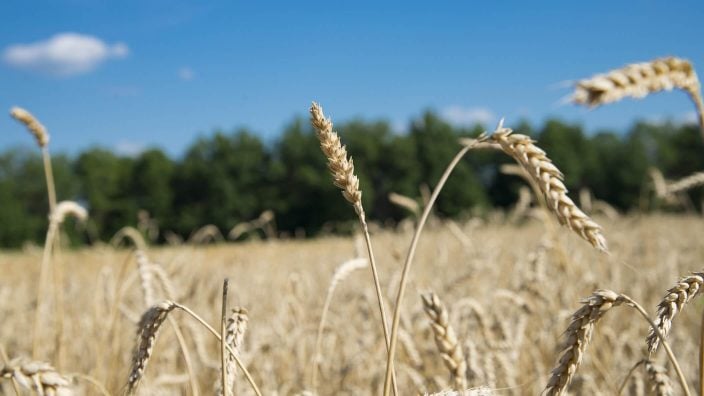Washington County Farm Bureau hosts CAUV meeting
Leah Hetrick, from Ohio Farm Bureau, explained how CAUV works and how the equation used to determine property taxes works.
Read MoreOhio landowners in 41 counties across the state that are on reappraisal or update this year will see new tax bills in January 2024.
Property taxes are one of the biggest expenses farmers face each year, and the CAUV program saves Ohio farmers millions of dollars each year. With plenty of news coming out about those CAUV values this year, Leah Curtis, policy counsel with Ohio Farm Bureau, covers this topic on this Legal with Leah.
Listen to Legal with Leah, a podcast featuring Ohio Farm Bureau’s Policy Counsel Leah Curtis discussing topics impacting farmers and landowners.
Ty Higgins [00:00:00] Property taxes, one of the biggest expenses farmers face each year. And the CAUV program saves Ohio farmers millions of dollars year in and year out. Lots of news coming out about those CAUV values this year. So let’s talk about it with Leah Curtis, policy counsel with Ohio Farm Bureau for this Legal with Leah.
Ty Higgins [00:00:19] Let’s start with a reminder of what CAUV is and why it’s important to Ohio farmers.
Leah Curtis [00:00:25] So CAUV stands for Current Ag Use Valuation, and it is a program that deals with property taxes and allows farmland to be valued at its agricultural value rather than the market value for property tax purposes. So any other type of property generally is valued at the price that it would change hands on an open market. But agricultural property that qualifies for this program is instead going to have that sale pressure, that development pressure removed from its value and considers only agricultural data to value that property.
Ty Higgins [00:00:55] Historically, this means CAUV property values are less than typical market values that farms would be valued at.
Leah Curtis [00:01:02] Absolutely. So market values do vary across the state depending on the area of the state that you live in. But CAUV values are going to be based on soil types and agricultural net income, and they follow the agricultural economy. So because they do follow the ag economy, they do change. But on average they have consistently stayed well below market values throughout the years.
Ty Higgins [00:01:22] Now, given what we’ve seen in the farm economy over these past several years, we are seeing those changes in CAUV values coming up. What are we seeing?
Leah Curtis [00:01:32] So after having some effects of a lower farm economy for a few years in the calculation, we’re now seeing impacts of a very strong economy. Particularly those are strong crop prices and crop prices that were not only strong, but sustained over several years. Most of our data sets in the formula use seven years of data. So we’re looking at 2017 to 2023, and that has resulted in significant increases in the CAUV soil values. Those new values are going to apply to landowners in the 41 counties across the state that are on reappraisal or update this year. And so they will see new tax bills in January 2024 since we pay our property taxes one year behind.
Ty Higgins [00:02:12] And there could be some serious sticker shock, as some auditors have said, their soils will be increasing somewhere in the 80 to 100% range. But what does that mean for taxes?
Leah Curtis [00:02:23] So certainly there are going to be increases in taxes, and I want to be very clear about that. And I want to say that residential homeowners are also seeing very strong increases in their home values as well. So that is going to be consistent across the taxing public to some extent. But it is important to remember that the increase in your taxable value is not the same as the increase in your taxes. The tax rate that’s going to be applied and determine what you pay, that is locally determined. It starts with 10 mills that the Ohio Constitution says you will be charged. After that, it’s those levies that you have voted on in your local area. And that tax rate does adjust to some extent. And so that’s why the increase in your value is generally not the same as the increase in your taxes.
Ty Higgins [00:03:06] Many people don’t realize Ohio does have a pretty strong property tax limitation in the law.
Leah Curtis [00:03:13] We hear from people… A lot of times we talk about property taxes and maybe they have land in other states and they’ll say, well, the state has that law or this other law that limits property taxes. Every state is different. Ohio does have what we call the 920 effect or the tax reduction factor. It stems from House Bill 920. And essentially what that law says is that most levies cannot raise more money than they did in the first year they were on your tax bill. So, for example, if a levy raised $1,000,000 in that first year that you voted on, the first year you were charged it, and that is still on your tax bill today in 2023, it still can only collect $1,000,000, and that happens by reducing the millage rate. So maybe you voted for it to be two mills. But at this point, because of the changes in property values and it still can only collect that same amount of money, it’s rolled back to one and a half or one mill. And so that’s why you’ll see a gross millage rate. The gross millage rate is typically what you voted on, an effective millage rate. The effective millage rate is that rolled back rate that you’re actually taxed on.
Ty Higgins [00:04:12] What else is the Ohio Farm Bureau working on as far as CAUV is concerned?
Leah Curtis [00:04:17] Many people remember we did significant reform in 2017 and the point of that reform was to remove the nonagricultural factors that were in the formula at that time and were really driving up the values at the time, largely related to the capitalization rate. Now we’re seeing values largely driven up by the actual crop prices and the ag factors. But we do know that that spike in value and and how that creates a spike in your taxes, that is the main concern. And that’s what a lot of people are concerned about. So we’re working multiple channels to address these as well as some other CAUV concerns. We’re doing our continued review of the formula. We’re meeting with the tax department as to those concerns and also the Legislature recently passed in the 2023 budget a joint committee on property taxes. So we do intend to be heavily engaged with that, and we will be advocating for our own policies not just on CAUV, but on property tax in general for our members through that committee process as well.
Ty Higgins [00:05:12] As Leah said, almost half of Ohio’s 88 counties are going to be seeing these increases in 2024. So we have an FAQ at Ohio Farm Bureau.org if you have any questions about CAUV moving forward.
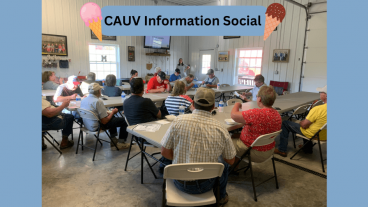
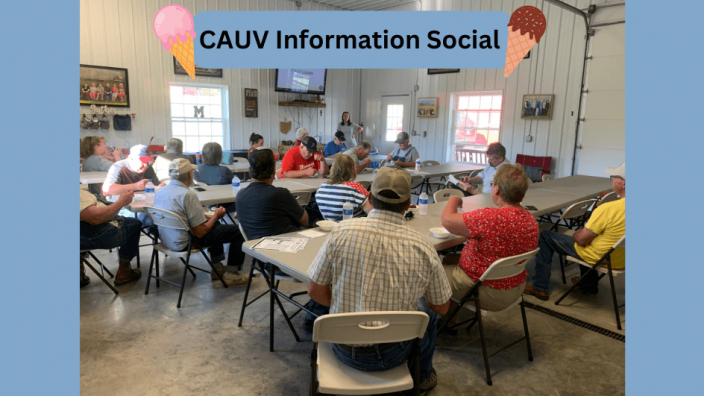
Leah Hetrick, from Ohio Farm Bureau, explained how CAUV works and how the equation used to determine property taxes works.
Read More

As Ohio Farm Bureau Policy Counsel Leah Curtis notes in this Legal with Leah, these changes should result in significant tax savings for many Ohio woodland owners.
Read More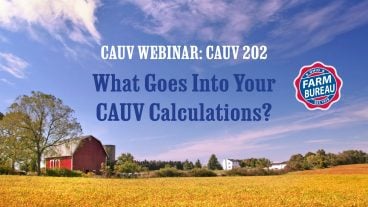
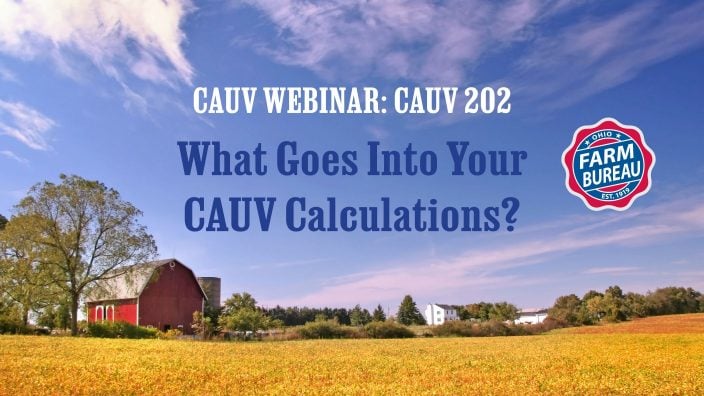
CAUV 202 took a deeper dive into how tax bills are formulated and what exactly goes into the Current Agricultural Use Value numbers.
Read More

After years of advocacy from Ohio Farm Bureau and its partners, the Ohio Department of Taxation announced today that it will address inaccurate woodland calculations in the Current Agricultural Use Value program.
Read More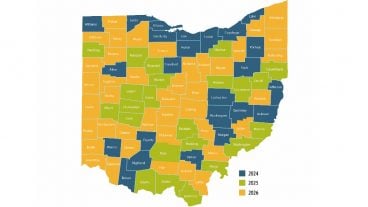
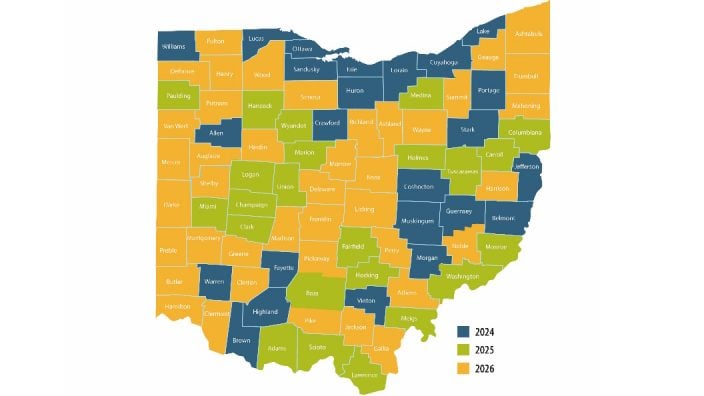
Taking a look at the history of CAUV can help with understanding its structure, fluidity and the eternal vigilance needed by Ohio Farm Bureau and our members for its sustainability.
Read More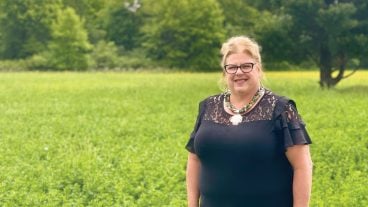
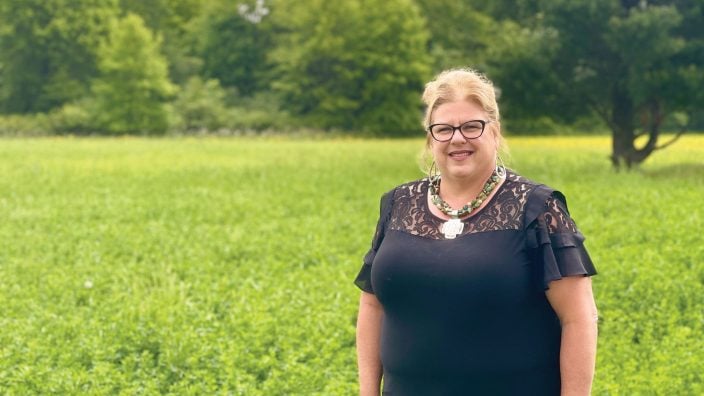
Kelly Tennant’s story starts as many others in agriculture do, but her current day job impacts Ohio ag more than most.
Read More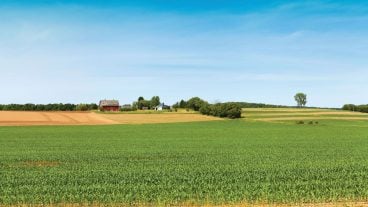
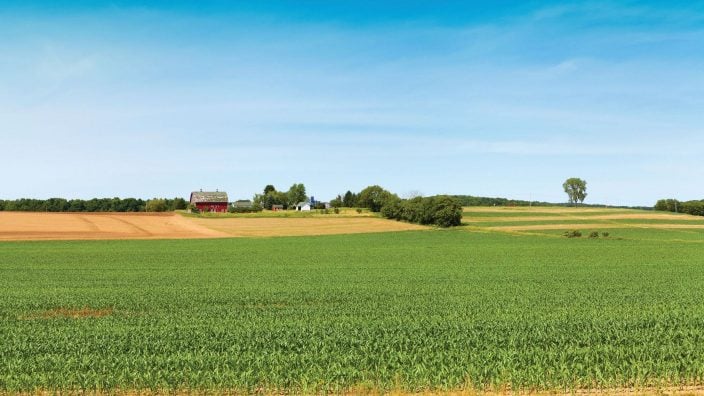
Learn more about eligibility and how to include conservation practices on CAUV enrollment forms.
Read More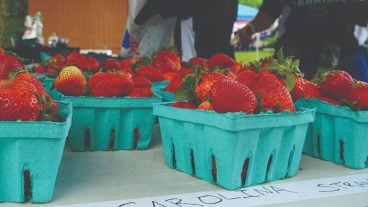
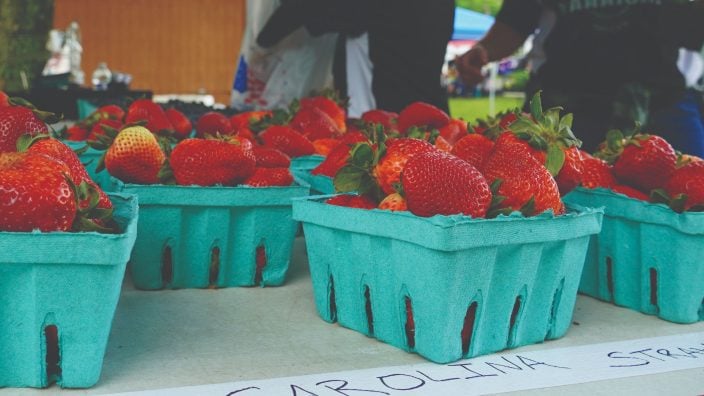
Bob and Polly Givens are on a mission to inform small landowners-homesteaders of the advantages of CAUV.
Read More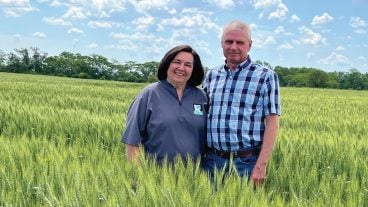
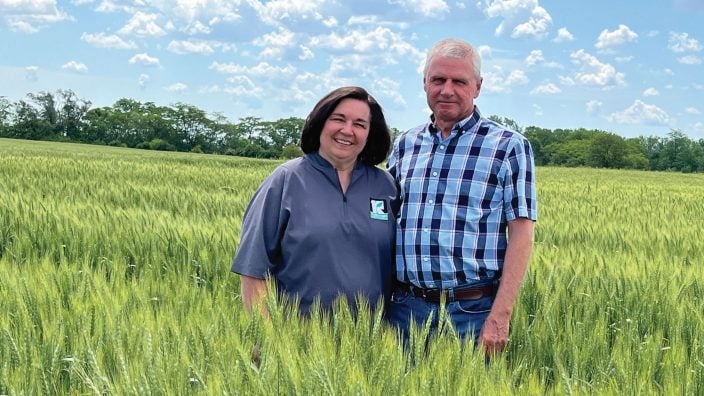
With the pressure on Ohio farms, perhaps the most important way farmers can afford to keep farming is with the protection of CAUV.
Read More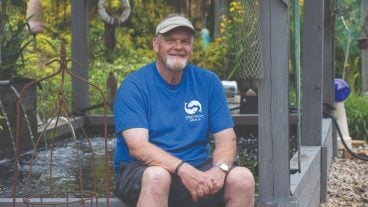
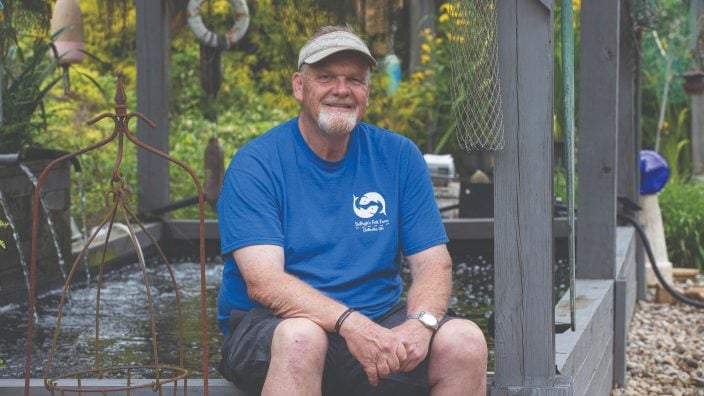
Mark DePugh was on the fence about renewing his CAUV enrollment, until he realized the amount of tax savings he would be missing.
Read More